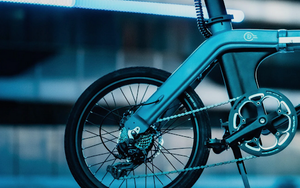Are Electric Scooters Legal in Portsmouth?
Sep 29, 2024
Electric scooters have become increasingly popular in urban areas for their convenience and eco-friendliness. However, questions about their legality often arise, especially in cities like Portsmouth. This article aims to explore the legal framework surrounding electric scooters in the UK and specifically in Portsmouth.
Understanding Electric Scooter Laws in the UK
The Basics of UK Electric Scooter Laws
In the UK, electric scooters are classified as 'powered transporters.' This classification places them under a specific regulatory framework. According to current legislation, the use of electric scooters on public roads and pavements is illegal unless they are part of a government-approved trial scheme.
Electric scooters must have a maximum power output of 250 watts and should not exceed a speed of 15.5 mph. Riders are also required to adhere to the UK Highway Code, which includes wearing a helmet, being of a minimum age of 16, and not riding on footpaths. These regulations are designed to ensure the safety of both riders and pedestrians, as the increasing popularity of electric scooters raises concerns about potential accidents and road safety.
Additionally, there are provisions regarding the insurance and registration of electric scooters, which further complicate their legal status. Unlike bicycles, electric scooters do not require registration or insurance, which has led to debates among lawmakers about the need for a more comprehensive regulatory framework that could address these gaps and enhance safety measures.
How Portsmouth Interprets These Laws
Portsmouth has been part of a government trial scheme that allows specific operators to provide rental electric scooters in designated areas. This means that while privately owned scooters remain illegal for road use, rental scooters can legally be used within the trial zones. The trial aims to assess the safety and efficiency of electric scooters as a transportation option. In these designated areas, riders can enjoy the convenience of electric scooters, which offer an eco-friendly alternative to traditional vehicles, potentially reducing traffic congestion and lowering carbon emissions.
As the trial continues, Portsmouth City Council keeps evaluating its parameters, focusing on user safety and adherence to traffic regulations. The council has implemented measures such as designated parking zones and speed limits to ensure that the integration of electric scooters into the urban landscape is as seamless as possible. Furthermore, public feedback is actively sought to gauge the community's response to the initiative, which may influence future policies regarding electric scooters in the city. This ongoing dialogue between the council and residents reflects a broader trend in urban planning, where community input is increasingly valued in shaping transportation policies.

The Legality of Electric Scooters in Portsmouth
Current Legal Status of Electric Scooters
As of now, privately owned electric scooters are illegal to ride on public roads and pavements in Portsmouth. Riding these scooters can lead to fines and penalties. However, rental scooters provided by sanctioned companies are legal in specific areas under the current trial scheme. Riders using these rental scooters must follow strict guidelines, including speed limits and designated parking areas. These rental schemes have been introduced in various cities across the UK to assess their viability and safety, and Portsmouth is no exception. The trial aims to gather data on how electric scooters can coexist with other forms of transport while minimising risks associated with their use.
Portsmouth's local authorities emphasise the importance of adhering to these regulations to ensure public safety and legal compliance. Violations can lead to the confiscation of personal scooters and fines, reinforcing the need for riders to stay informed about local laws. The city has also implemented educational campaigns to inform residents about the rules surrounding electric scooters, aiming to foster a culture of responsible riding. This proactive approach not only helps in maintaining order on the streets but also encourages a more sustainable mode of transport that aligns with environmental goals.
However you can ride electric scooters on private land with the permission of the landowner. The Ducati Scrambler and the iENYRID ES60 are popular off-road models.
Penalties for Illegal Use of Electric Scooters
Riding an electric scooter illegally can lead to significant penalties. Offenders can face fines of up to £300 and receive points on their driving licences. Additionally, police may remove the scooter if it is being ridden unlawfully. Such measures aim to discourage misuse and ensure that the trial schemes remain effective and safe. The penalties are designed not only to punish but also to educate riders about the importance of following traffic laws, which are in place to protect both the riders and the general public.
It is crucial for residents and visitors in Portsmouth to be aware of these penalties. Understanding the local laws will help prevent legal troubles and promote a safer environment for all road users. Furthermore, as the popularity of electric scooters continues to rise, local authorities are considering the potential for permanent regulations that could allow for more widespread use of these vehicles, provided that safety measures are effectively implemented. Engaging with community feedback during this trial phase is essential, as it will shape the future of electric scooter legislation in Portsmouth, ensuring that it meets the needs of both users and the wider community.

The Debate Around Electric Scooters in Portsmouth
Arguments for Legalisation
Proponents of electric scooter legislation argue that these vehicles offer numerous benefits. Chief among them is the reduction of traffic congestion, as scooters occupy less space on the road than cars. Additionally, they provide an environmentally friendly alternative to petrol and diesel vehicles, contributing to cleaner air quality in urban settings. Studies show that the use of electric scooters results in a 45% reduction in life cycle carbon emissions.
Furthermore, supporters claim that electric scooters can enhance transport connectivity, allowing users to travel short distances quickly and conveniently. This improvement could alleviate the pressure on public transportation systems, especially during peak hours.
Arguments Against Legalisation
On the flip side, opponents raise concerns about safety and the potential for increased accidents. The lack of dedicated lanes for electric scooters can lead to dangerous interactions with both pedestrians and vehicles. Critics also point out that helmets are not always used, heightening the risk of injury in the event of an accident.
Moreover, there are worries regarding the enforcement of laws for rental scooters. With multiple operators involved, ensuring that all riders follow safety rules becomes more complex. This inconsistency can lead to a mixed public perception of electric scooters and their role in urban transportation.

The Future of Electric Scooters in Portsmouth
Proposed Changes to Electric Scooter Laws
As the trial period progresses, there are discussions around potential changes to the existing laws governing electric scooters. One proposal includes expanding designated areas for legally riding scooters and creating more clearly marked lanes to enhance safety.
Another suggestion is to implement user education programs, helping riders understand the regulations and safety precautions associated with electric scooters. Involving the community in these discussions could lead to a more balanced approach to the legal framework, catering to both safety and convenience.
Impact of Legal Changes on Portsmouth Residents
If significant changes to electric scooter laws take effect, Portsmouth residents may see a shift in how transportation options are utilised throughout the city. Greater availability of safe riding spaces could encourage more individuals to use electric scooters as a primary mode of transport, potentially reducing reliance on cars and public transport.

Conclusion
Ultimately, the legal landscape surrounding electric scooters in Portsmouth is evolving. Continued monitoring of rental programs and public sentiment will play a crucial role in shaping the future of electric scooters in the city, making it imperative for both riders and non-riders to stay informed.
Check out our full range of electric scooters, ideal for use on private land here.






